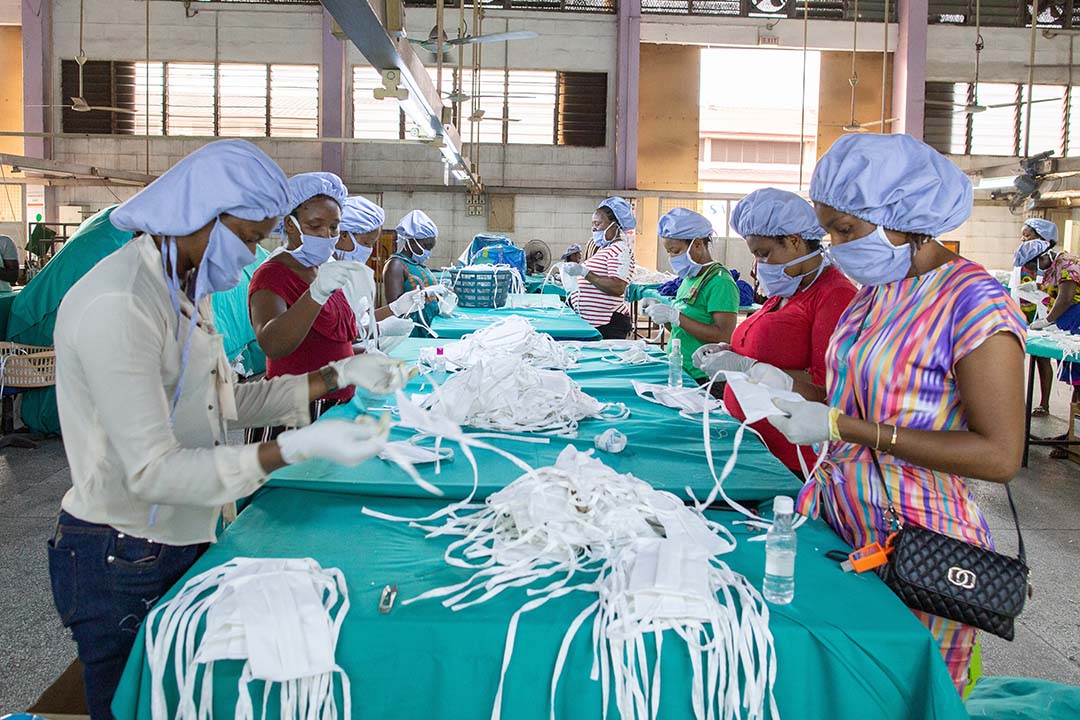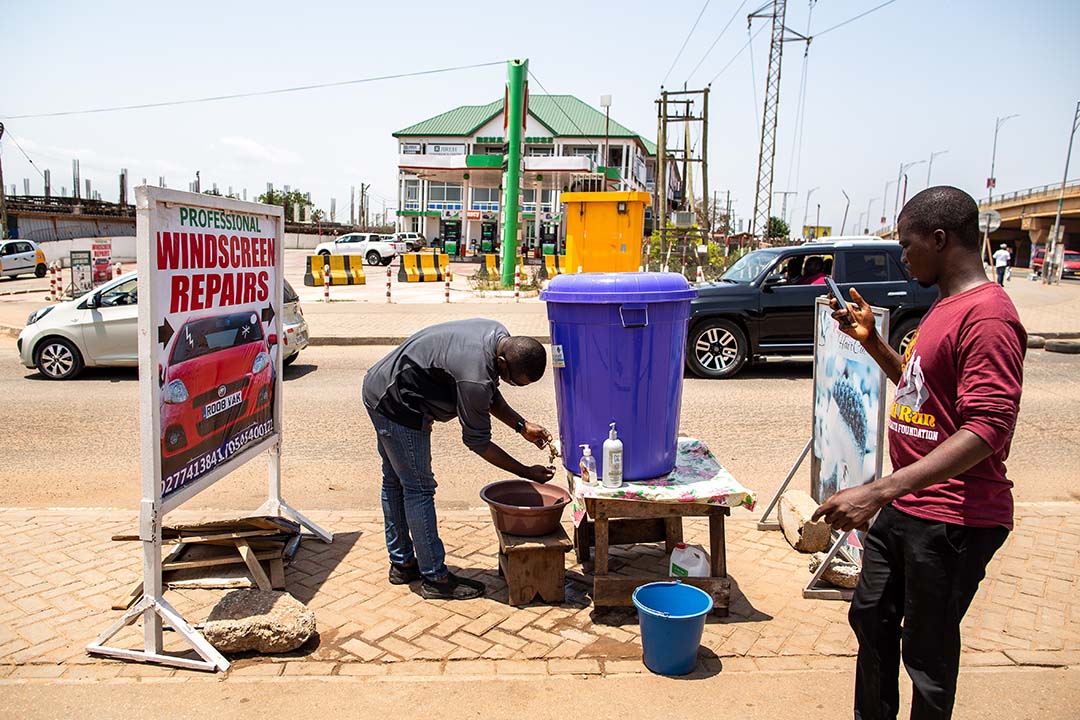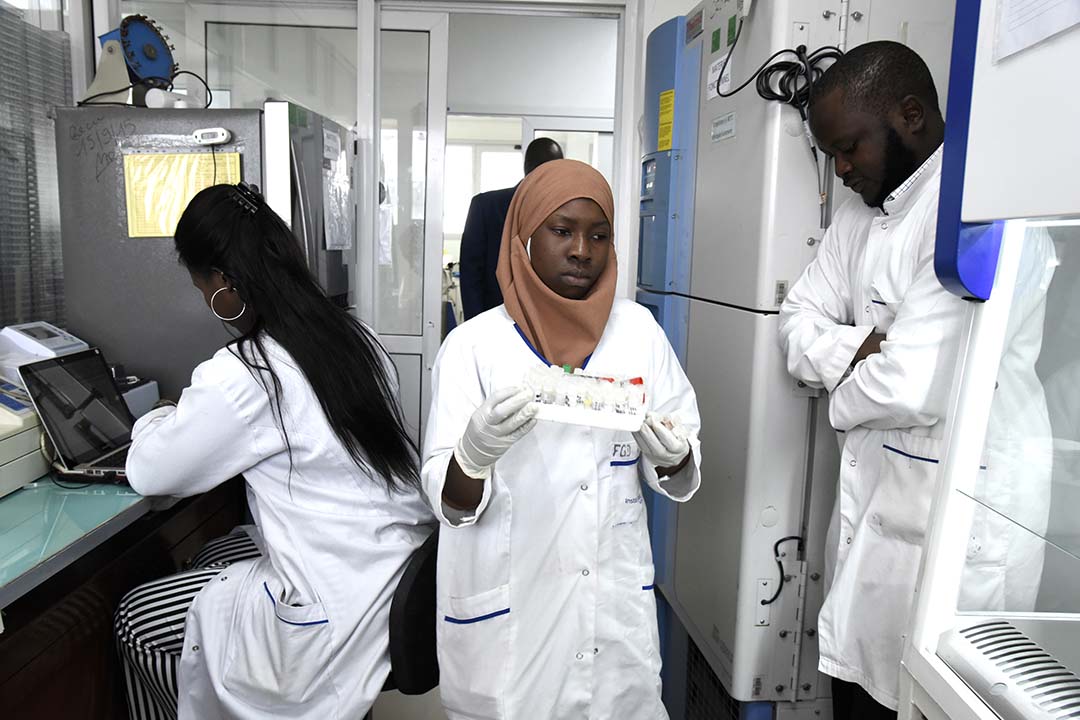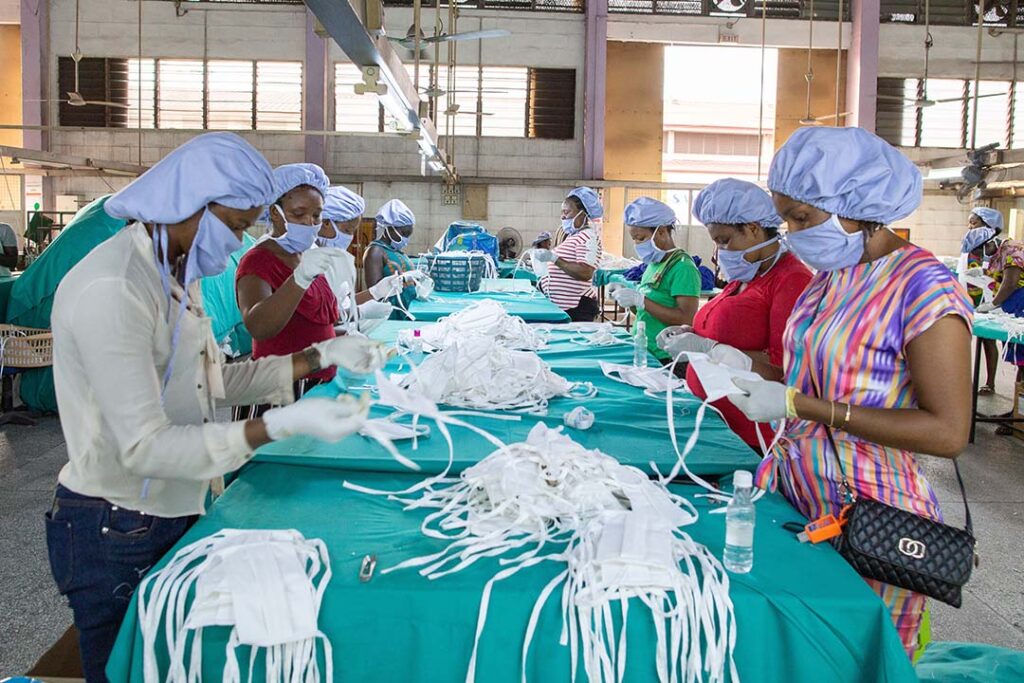Strong medicine: the COVID-19 effect
Despite immense challenges, the coronavirus pandemic could offer a unique opportunity for transformative change across the continent

Despite the devastating worldwide effects of the COVID-19 pandemic, some politicians and scholars have advanced the idea that this crisis could be a transformative event in the long run. Others have refuted that notion, suggesting we will simply return to the “status quo”, whatever that means. One thing is certain: life will be more difficult for many people around the world for some time, as they confront the pandemic’s health, economic and social consequences. But in the longer term there is good reason to believe that COVID-19 can be positively transformative for African and global health.
However, this will require some honest retrospection on what didn’t go so well with the global response, and a willingness to do things differently in the future, as I have argued in a commentary recently published in the Global Public Health journal (2020). Although a pandemic of this nature was not unforeseeable, the arrival of COVID-19 in late 2019 seemed to catch the world off guard, hurling us into a state of partly haphazard disaster mitigation. In early 2020, some of the world’s wealthiest areas initially affected by the pandemic, in Europe and the Americas, saw their health systems overwhelmed and their economies crippled.
Containment measures have since been inconsistent within and across countries. Global solidarity mechanisms and allocated funds have not come close to the predicted need: in May, the UN Office for the Coordination of Humanitarian Affairs indicated that less than 15% of the estimated $6,7 billion needed to respond to the public health and humanitarian consequences of this pandemic had been met. Moreover, challenges in global response coordination have not been helped by the United States (US), the World Health Organization’s main contributing member, undermining the agency’s credibility through accusations of mismanagement and withdrawal of funding at such a crucial time.
Strengthening both health crises management – and more broadly global health – will require going beyond the development of more effective plans for health emergency preparedness. It will entail confronting the failings of global health governance and leadership, which in turn cannot be disentangled from power disparities and social inequalities that continue to exist at various levels. These include individual level social determinants of poor health, such as inadequate housing and food insecurity, weak public health systems that prevent universal access to decent healthcare, and disparities in health research, information and decision-making power between the Global North and South.
As always, across the world, the most vulnerable have borne the brunt of this latest health crisis. COVID-19 has simply further highlighted and exacerbated existing inequalities. Redressing health disparities cannot be effectively achieved during times of crisis, but instead requires longer-term sustained action: through policies and interventions that tackle key social determinants of health; through more sustained technical support for, and investment in, health systems in low-and middle-income countries (LMICs), as envisaged in the International Health Regulations; through the creation of contingency resources for crisis solidarity funding and, importantly, by ensuring that governance structures of key global health players – including the WHO – are more representative of LMICs, marginalised communities, and civil society organisations.

But what is Africa’s role in this much-needed transformation of global health? This will ultimately have to be determined by African countries and their constituents. However, the COVID-19 response provides some useful lessons. First, African countries should further strengthen their own health (and broader) governance, building on the gains of past decades, such as progress made in addressing infectious disease and preventing childhood illness. This will both bolster countries’ health and crisis management capacity and increase their influence on the world stage. There have already been examples of good African leadership in response to COVID-19. In fact, despite grim predictions of the pandemic’s effects in lower-income countries, the reality has been more nuanced.
Initial success stories can be mainly attributed to prompt evidence-based action, strong leadership by example and community mobilisation, driven by the realisation that some of the approaches adopted in wealthier settings would not be an option. For example, Senegal and Ghana managed to control their epidemics early through good contact tracing systems and the involvement of community health facilities, workers and volunteers. Senegal developed a low-cost COVID-19 testing kit, while Ghana implemented “pool testing” (testing of multiple blood samples together, followed up only in the case of a positive result).
Moreover, it has been argued that the pandemic can be a catalyst to transform health services in Africa and re-envisage health as a public good. In their recent commentary titled: ‘How COVID-19 could benefit tuberculosis and HIV services in South Africa’, Keene et al (2020) argue that interventions developed for COVID-19, such as stigma reduction campaigns and community screening and tracking tools, could enhance existing services (for example, for TB or HIV) and systems. At the same time, they point out, the pandemic has highlighted persisting system weaknesses to be addressed, such as poor integration of community health workers and supply shortages.
Second, we should draw inspiration and learnings from the myriad of innovations, creative ideas and resourceful thinking emerging in response to COVID-19 across sectors in Africa, often in a context of scarce resources. Examples include: a free online triaging App developed in Nigeria to help users assess their coronavirus risk level and connect them to remote medical advice or healthcare facilities; the South African government’s Whatsapp interactive chatbot to address queries on COVID-19 prevention and treatment; a $1 immune-based diagnostic test and multifunctional medical robots to lessen the burden on healthcare workers, developed in Senegal; and the use of drones to take samples to testing sites or provide inflight public awareness broadcasts in Ghana and Rwanda.
Companies across the continent have adapted manufacturing capacity to produce compact economical ventilators and other medical supplies. E-commerce models and digital technology solutions have been strengthened, motorcycle taxis repurposed into couriers and delivery services, and mobile testing booths set up. And these examples are by no means exhaustive. Third, cross-sectoral country and regional partnerships should be established or strengthened to systematically promote, scale up and fund innovative local products, emerging technologies and information exchange. Here, too, the COVID-19 pandemic has been a catalyst for new initiatives.

These include regional economic and technical communities, public-private coalitions and innovation hubs across the continent. For example, a Kenyan coalition including technology firms and community groups is using their digital platforms and supply chains to distribute sanitisers and other protective equipment in informal settlements. South Africa developed a COVID-19 modelling consortium and an online dashboard to share real-time updates. Business coalitions have been set up in Nigeria and South Africa to mobilise private sector resources for the pandemic response. E-learning platforms have been launched in a number of countries through partnerships among broadcasters, telecoms and private organisations.
And in July, the WHO and the Africa Centres for Diseases Control (CDC) launched an expert advisory committee to enhance the research and development of traditional medicines for COVID-19 in Africa. Fourth, cooperation and integration on health and social issues need to be further bolstered on the African continent. The COVID-19 crisis has, in fact, prompted greater health collaboration within the African Union (AU). Initiatives include the AU’s Joint Continental Strategy to guide cooperation between member states, a COVID-19 response fund, and a platform to pool African countries’ procurement of diagnostic and medical supplies.
It remains to be seen whether these developments can be sustained and lead to longer-term cooperation on health and social projects, including research and development, within and beyond the region. Lastly, African countries and supranational bodies should play a key role in reshaping the global health order and redressing power disparities. As important as it is to support initiatives originating from Africa, this should not obscure the need for broader structural and systemic change on the continent and beyond, as argued above. In an increasingly interconnected world with historical and persisting social injustice, the change we need has to be both local and global, and the two are inextricably connected.
A stronger and more united Africa should use its leverage to influence the world’s most powerful countries and global health organisations. It should advocate for increased solidarity and sustained investment in health systems support in African and other Lower and Middle Income Countries (LMICs), and for their stronger representation in the decision-making processes determining world health priorities and funding allocation. Despite the pesky international politics that overshadowed African leaders’ presence at the 2019 G7 in Biarritz, the increasing focus on issues of inequality and the dialogue on health initiated at these world fora are at least steps in the right direction.
African leaders should capitalise on these to push forward discussions and collaboration for global health reform. This is also a moment of pressure for change emerging from other important centres of power: for example, social movements such as the “Me Too” movement and “Black Lives Matter” are connecting individuals and civil society organisations across the globe in their demands for a more just world. We should not underestimate their power, nor forget the transnational change spearheaded by African civil society during the darkest moments of HIV denialism. Africa needs to move with the resolve and the energy of this moment, to push for the local and global change its people deserve.



